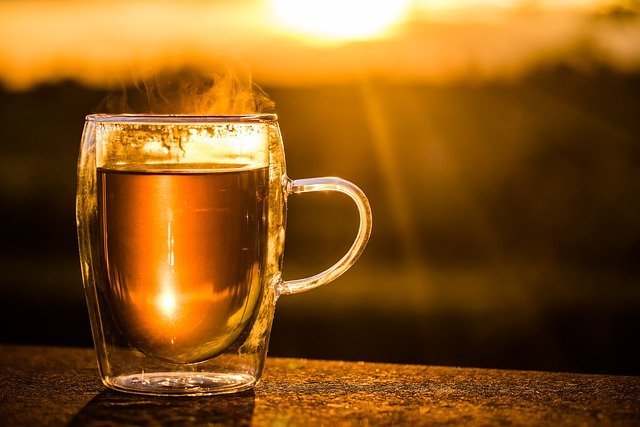Teología del placer[esp][eng]

Source
¿Si hemos hecho una teología del dolor, por qué no esbozar ahora también una teología del placer? De esta manera, no solo hago mi participación en la iniciativa semanal de la comunidad de Humanitas, sino también presento mi aporte a la comprensión de un tema que desde lo religioso se ha tendido a satanizar hasta el extremo de pensar que el placer es malo y pecaminoso, y lo que todavía es más escandaloso el camino de real realización es el dolor, ¿No es esta la razón por la cual los mártires son puestos como ejemplo dentro de la Iglesia Católica? Esta es una objeción válida y de hecho la trajo a colación mi amiga @zullyscott en una respuesta a un comentario. Por eso, para abordar esta temática vamos a partir en un primer momento de un pasaje bíblico muy sugerente.
"Jesucristo, un glotón y un borracho"
En una escena del Evangelio, Jesucristo compara su actitud antes las cosas de la vida con la de su primo Juan Bautista, el cual se caracterizaba por su austeridad. Explícitamente, les acusa de que "Vino el hijo del hombre (él mismo), que come y bebe, y dicen: Ahí tienen un glotón y un borracho..." (Mateo 11,19) Y es que si observamos la vida de Jesús de Nazaret luego de que empieza su ministerio público, que es cuando lo podemos ver cómo se conducía en el día a día, notamos que siempre resalta el gozar de las cosas buenas que nos rodean, de allí de hecho el escándalo de muchos en su actitud ante prácticas religiosas como el ayuno, la cual inculcaba a sus seguidores "Los discípulos de Juan ayunan frecuentemente... pero los tuyos no se privan de comer y beber" (Lucas 5,33)
Pudiese nombrar otros muchos textos, no solo del Evangelio, sino de la Escritura en general, pero mi intención aquí es ante todo resaltar que desde un punto de vista teológico, y que mejor argumento que la vida del mismo que se presenta como Dios encarnado, el placer, el disfrute de las cosas, es algo no solo importante sino natural y esencial para la humanidad porque malo no es lo que al ser humano le viene desde el exterior (el gozar de algo, por ejemplo) sino lo que sale de él, es decir, su actitud ante las cosas (Cfr. Marcos 7,14-23).
Por lo tanto, aquí pudiésemos concluir igual que lo hicimos con el tema del dolor, se trata de que seamos personas maduras que integremos el placer en nuestras existencias, sin remordimientos ni escrúpulos, cuidando sobre todo nuestra actitud ante él, ya que cuando por ejemplo por un placer personal pisoteamos a otra persona o nos hacemos daño de alguna manera, al final este humanamente no nos ayuda a crecer, pero si más bien este le da sentido y sabor a la vida y no dañamos a nadie, ¿por qué apartarlo de nosotros?
If we have done a theology of pain, why not now also outline a theology of pleasure? In this way, I not only make my participation in the weekly initiative of the Humanitas community, but I also present my contribution to the understanding of a subject that has tended to be demonized from the religious point of view to the point of thinking that pleasure is evil and sinful, And what is even more scandalous is that the way to real realization is pain. Is this not the reason why the martyrs are held up as an example within the Catholic Church? This is a valid objection and in fact was brought up by my friend @zullyscott in a reply to a comment. So, to address this issue let's start at first with a very suggestive biblical passage.
"Jesus Christ, a glutton and a drunkard."
In a scene from the Gospel, Jesus Christ compares his attitude before the things of life with that of his cousin John the Baptist, who was characterized by his austerity. He explicitly accuses them that "the son of man (himself) came, who eats and drinks, and they say, 'Behold, there is a glutton and a drunkard...'" (Matthew 11:19). "(Matthew 11:19) And if we observe the life of Jesus of Nazareth after he begins his public ministry, which is when we can see how he conducted himself in the day to day, we notice that he always emphasizes the enjoyment of the good things around us, hence in fact the scandal of many in his attitude to religious practices such as fasting, which he instilled in his followers "John's disciples fast often ... but yours do not deprive themselves of eating and drinking" (Luke 5:33).
I could name many other texts, not only from the Gospel, but from Scripture in general, but my intention here is above all to emphasize that from a theological point of view, and what better argument than the life of the one who presents himself as God incarnate, pleasure, the enjoyment of things, is something not only important but natural and essential for humanity because evil is not what comes to the human being from the outside (the enjoyment of something, for example) but what comes from him, that is, his attitude towards things (cf. Mark 7:14-23).
Therefore, we could conclude here, as we did with the theme of pain, that we should be mature people who integrate pleasure into our lives, without remorse or scruples, taking care above all of our attitude towards it, since when, for example, for personal pleasure we trample on another person or harm ourselves in some way, in the end this humanly does not help us to grow, but if it gives meaning and flavor to life and we do not harm anyone, why take it away from us?

Source

Los mártires
Está bien, podemos pensar, estas palabras realmente son argumentos en favor del lugar que debemos guardarle al placer en nuestras vidas, ahora bien, parece que estas palabras se las lleva el viento, porque ese mismo Jesucristo que goza de la vida terminó crucificado, por otra parte, muchos de sus seguidores más fieles han seguido su camino derramando su sangre, incluso son puestos como eximios ejemplos de vida para los demás. ¿Es que esto le era placentero? Si podían huir, ¿Por qué no lo hicieron?
Son preguntas válidas donde lo determinante es el punto de vista, la perspectiva que tenemos de los acontecimientos. En estos casos, el sufrimiento no era algo querido sino asumido, incluso como algo más bien transitorio, lo cual ya deja una importante reflexión para la humanidad y es que el placer se valora más después de su ausencia, por eso la vida se trata de buscar el equilibrio de todo, en este sentido, podemos decir que los mártires no exaltan el dolor, no son modelos por el mero hecho de sufrir, sino por el sentido que le dieron a esas circunstancias que les toco confrontar, donde incluso su motivación era el gozo que vendría después, como lo expresó un niño mártir de la guerra cristera en México: "Nunca fue tan fácil ganarse el cielo" (Beato José Luis Sánchez del Río).
Otro símbolo que nos puede ayudar a comprender esto es la resurrección, el auténtico centro de nuestra fe, hacia donde se encaminó toda la vida de Jesucristo, lo que coronó su pasar por este mundo, acontecimiento por el cual seguimos hablando de Él hasta el punto de dividir la historia en AC y DC. Pues bien, a los cristianos no se nos invita a vivir una vida de crucificados, sino de resucitados, donde lo que abunde sea la alegría de existir y compartir con los demás, ¿Acaso no es esto lo que buscamos cuando ansiamos el placer? Te respondo inmediatamente...
The martyrs
Okay, we may think, these words are really arguments in favor of the place we should keep pleasure in our lives, now it seems that these words are carried away by the wind, because that same Jesus Christ who enjoys life ended up crucified, on the other hand, many of his most faithful followers have followed his path shedding his blood, they are even put as exemplary examples of life for others. Is it that this was pleasurable for him? If they could run away, why didn't they?
These are valid questions where the determining factor is the point of view, the perspective we have of the events. In these cases, suffering was not something wanted but assumed, even as something rather transitory, which already leaves an important reflection for humanity and is that pleasure is valued more after its absence, so life is about finding the balance of everything, in this sense, We can say that martyrs do not exalt pain, they are not models for the mere fact of suffering, but for the meaning they gave to those circumstances they had to confront, where even their motivation was the joy that would come later, as expressed by a child martyr of the Cristero War in Mexico: "It was never so easy to earn heaven" (Blessed José Luis Sánches del Río).
Another symbol that can help us understand this is the resurrection, the true center of our faith, towards which the whole life of Jesus Christ was directed, which crowned his passing through this world, an event for which we continue to speak of him to the point of dividing history into BC and AD. Well, Christians are not invited to live a life of the crucified but of the resurrected, where what abounds is the joy of existing and sharing with others, is this not what we seek when we crave pleasure? I answer you immediately...

Source

La cotidianidad
Sin lugar a dudas todo ser humano quiere ser feliz y para ello buscará siempre los medios necesarios para realizarlo, dichos medios a veces no pueden ser agradables (placenteros) pero lo asumimos precisamente como un puente pasajero en vista de esa felicidad que anhelamos. Pienso en una madre, exactamente una mujer que va a dar a luz, su felicidad en ese momento es tener a su bebé en sus brazos, no obstante, sabe que debe asumir ciertas cosas que no son agradables (placenteras) pero que le conducirán a gozar de aquella personita que espera con ansias. Por eso, a veces conviene preguntarnos sobre qué es lo que queremos realmente, un placer que dura un instante o la felicidad que integra mucho más cosas que un placer simple, sino uno que madurado por el dolor nos da un gozo mayor.
La vida como regalo de Dios debe, como con todo regalo, ser valorado y disfrutarse. El masoquismo no es de Dios, tampoco del ser humano, porque lo que hace humana su vida son esos placeres que llegan o son buscados, de hecho en momentos de sufrimiento el mejor consejo es para sanar el mismo, hacer actividades que le causen placer a la persona, lo que le dé sosiego, lo que le ayude a su paz: salir a pasear, leer un buen libro, establecer una relación afectiva, hacer una actividad social, etc.
El placer de vivir pudiese ser una guía para la cotidianidad porque es que si no está se vuelve rutinaria y, por lo tanto, no estamos aprovechando este regalo de la vida que se nos dio y, al final, esta es la verdadera ofensa a Dios El cual ha creado todo y lo ha hecho bueno, son nuestras actitudes
y malas intenciones las que pueden tergiversas este sentido original de las cosas.
Everyday life
Undoubtedly every human being wants to be happy and for that he will always look for the necessary means to achieve it, these means can sometimes not be pleasant (pleasurable) but we assume it precisely as a temporary bridge in view of that happiness we long for. I think of a mother, exactly a woman who is going to give birth, her happiness at that moment is to have her baby in her arms, however, she knows that she must assume certain things that are not pleasant (pleasurable) but that will lead her to enjoy that little person she is eagerly awaiting. For this reason, sometimes we should ask ourselves what we really want, a pleasure that lasts an instant or the happiness that integrates much more than a simple pleasure but one that, matured by pain, gives us a greater joy.
Life as a gift from God must, as with all gifts, be valued and enjoyed. Masochism is not of God, neither is it of the human being, because what makes his life human are those pleasures that come or are sought, in fact in moments of suffering the best advice is to heal the same to do activities that cause pleasure to the person, what gives him tranquility, what helps him to his peace: go for a walk, read a good book, establish an affective relationship, do a social activity, etc.
The pleasure of living could be a guide for daily life because if not, it becomes routine and therefore we are not taking advantage of this gift of life that was given to us and, in the end, this is the real offense to God who has created everything and has made it good, it is our attitudes and bad intentions that can distort our daily life.
and bad intentions that can distort this original sense of things.

Source

Muchas gracias por haberme acompañado en la lectura de este post, espero tus comentarios y que nos podamos volver a encontrar en una próxima publicación, hasta luego.
Invito a participar a @enmagabriela y a @ariannybarco28
Thank you very much for having accompanied me in the reading of this post, wishing you always the best and that we can meet again in the next publication, I say goodbye, see you later.
I invite to participate to @enmagabriela and @ariannybarco28.




https://twitter.com/JBitcoins/status/1572520631996121088
The rewards earned on this comment will go directly to the people( @jesusalejos ) sharing the post on Twitter as long as they are registered with @poshtoken. Sign up at https://hiveposh.com.
Concuerdo contigo, si algo me produce placer, voy a disfrutarlo. Si no nos hacemos daño y perjudicamos a otras personas, pues entreguémonos al placer y disfrutemos. 😁